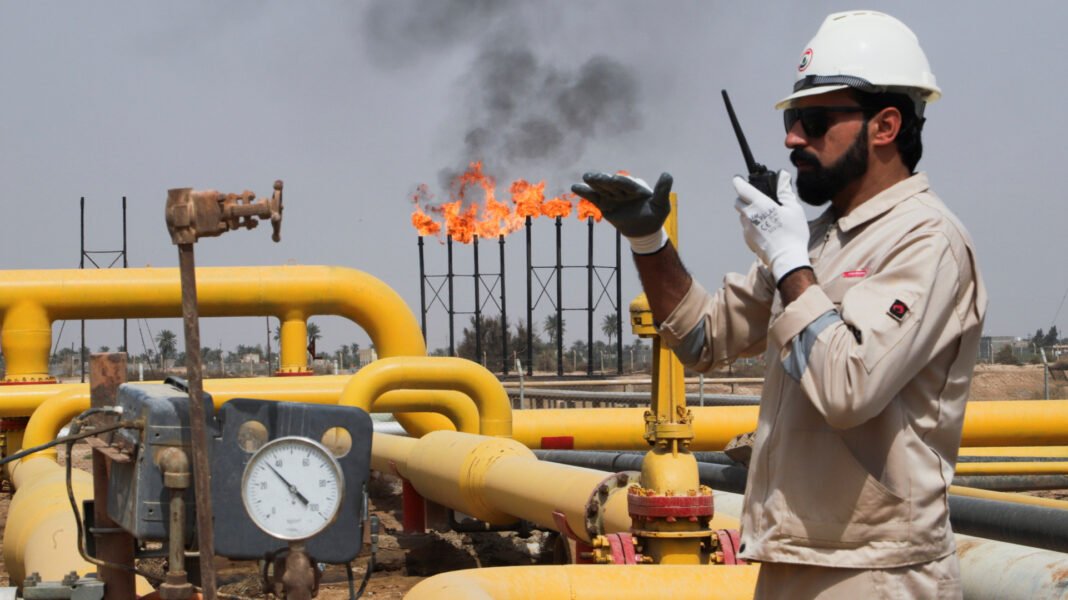Iraq’s Basrah crude prices increased, following a broad rise in global oil markets. The gains reflect improving investor sentiment and stronger demand expectations, fueled by supply concerns and easing fears over economic slowdown.
Basrah Heavy crude rose by $1.60, reaching $61.40 per barrel. Basrah Medium crude also gained $1.60, climbing to $62.19 per barrel. Analysts said these rises mirror the movements in international benchmark prices and indicate renewed stability for Iraq’s oil exports.
On the international stage, Brent crude futures, the global benchmark, climbed $1.94, or 3.1%, to $64.53 per barrel. U.S. West Texas Intermediate (WTI) crude futures also gained $1.89, or 3.2%, reaching $60.39 per barrel. The increase in Brent and WTI reflects tighter supply conditions, as production cuts by key oil producers continue to support prices.
Industry observers noted that Basrah crude, Iraq’s primary export blend, is highly sensitive to global trends. A rise in Brent and WTI directly influences the pricing and revenues of Iraq’s oil sector. The upward movement provides a welcome boost to Iraq’s oil-dependent economy, particularly as government budgets rely heavily on oil revenues.
Market analysts attributed the global gains to multiple factors. These include ongoing geopolitical tensions in oil-producing regions, reduced inventories reported by major economies, and increased demand from Asia and Europe. Analysts also emphasized that investor optimism about economic recovery has reinforced upward pressure on crude prices, contributing to the surge in Basrah crude.
As Basrah crude prices increased it is expected to positively impact Iraq’s oil exports in the short term. It may enhance revenue streams for the government and support ongoing infrastructure and development projects funded by oil income.
In conclusion, Basrah Heavy and Medium crude blends climbed by $1.60 each, mirroring international benchmarks Brent and WTI. Analysts predict continued volatility but expect support from sustained global demand and production policies, signaling a cautiously optimistic outlook for Iraq’s oil market.


